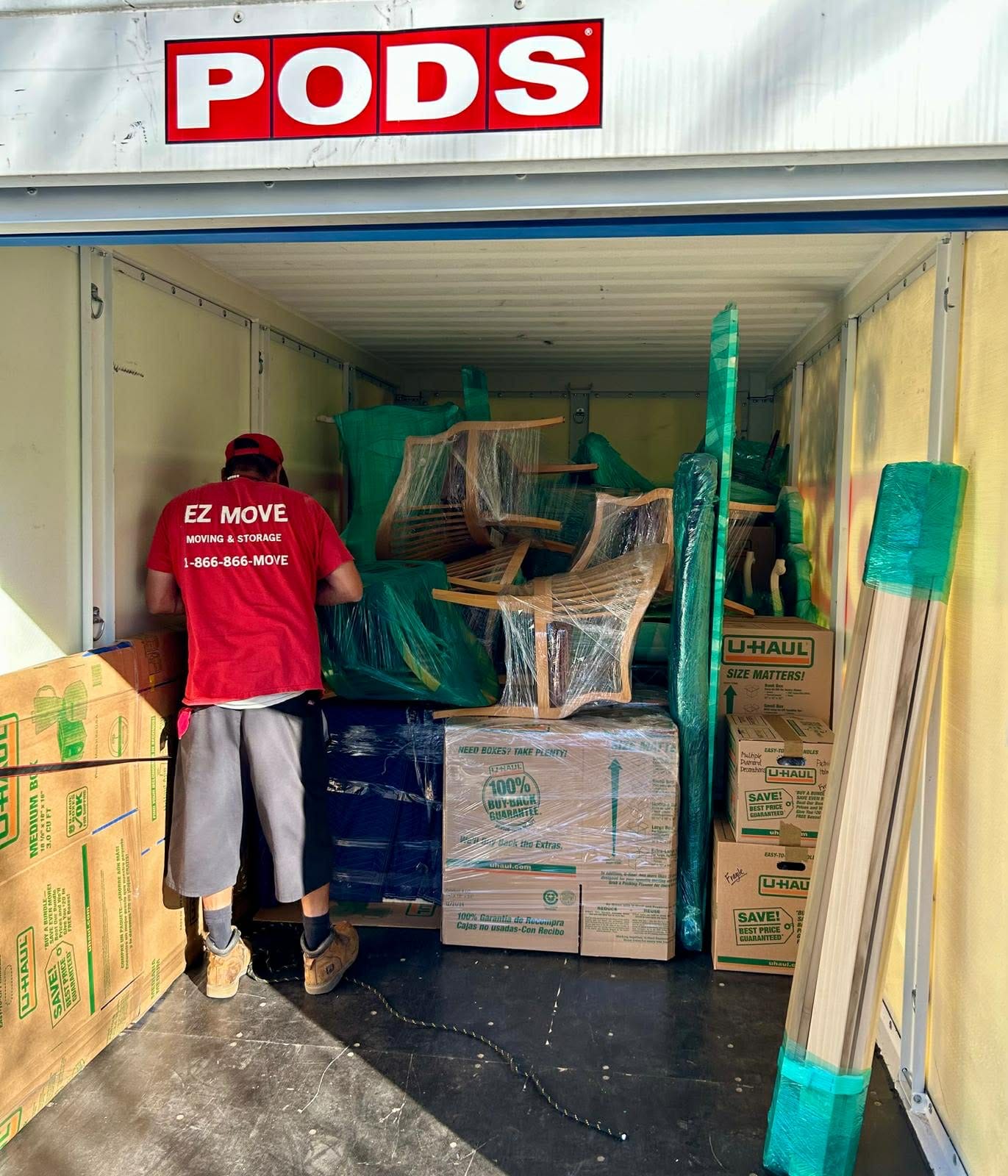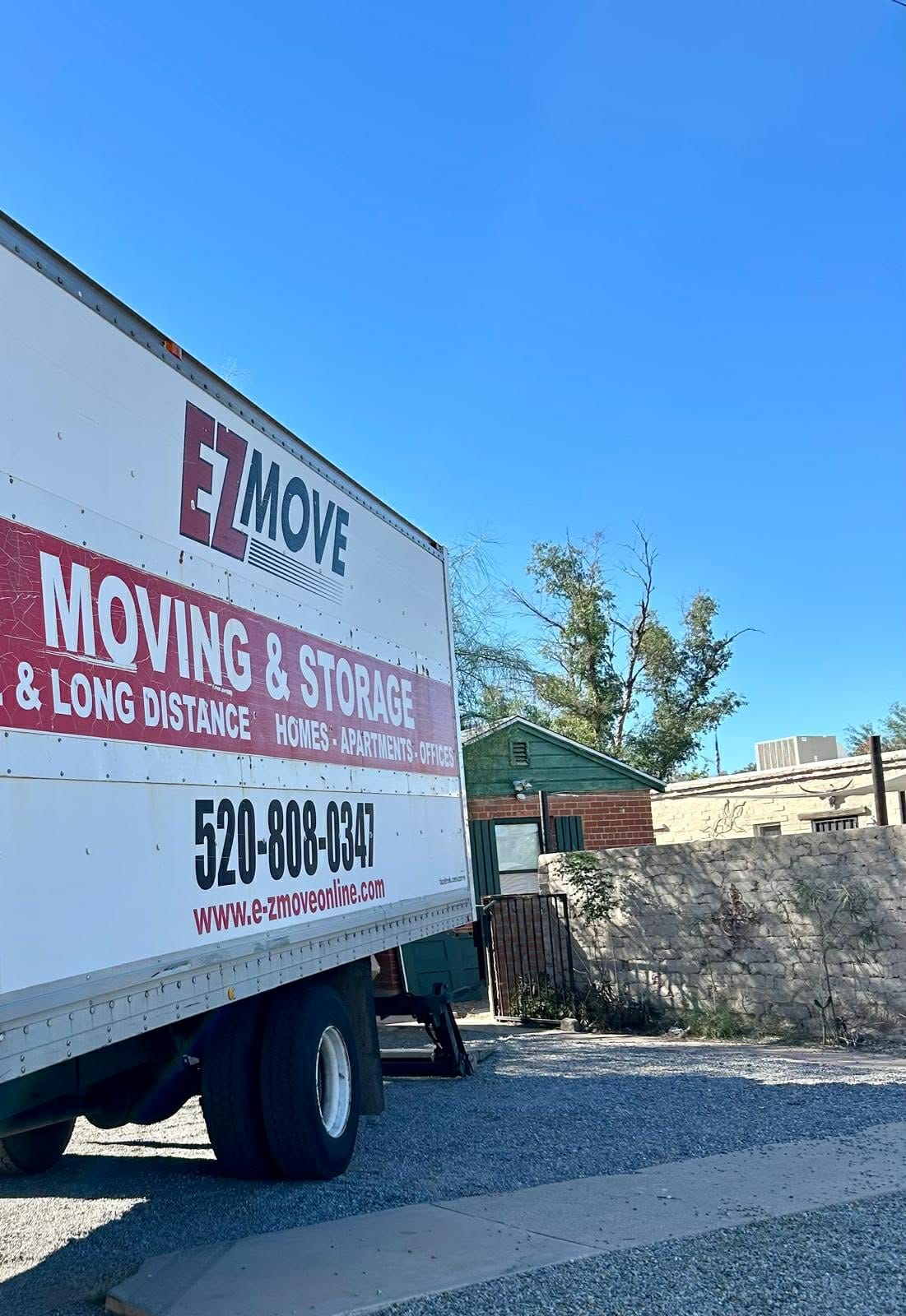Moving is stressful. Between packing, coordinating, and the actual physical labor, it’s a lot to handle.
And while you’re busy managing all the details, it’s easy to overlook one important aspect: tipping your movers.
But how much should you tip? Is it expected? What factors influence the amount?
This article breaks down everything you need to know about tipping movers, so you can show your appreciation for their hard work and ensure a smooth move.
Tipping Movers: Is it Necessary?
While tipping isn’t technically mandatory, it’s considered standard practice in the service industry, and moving is no exception.
Think of it this way: movers go above and beyond to transport your valuable possessions safely and efficiently.
They handle heavy lifting, navigate tricky stairwells, and often work in challenging conditions. A tip is a tangible way to acknowledge their effort and express gratitude for their service.
Calculating the Tip: Factors to Consider
Unlike tipping at a restaurant where a percentage of the bill is the norm, tipping movers involves a bit more nuance. Several factors come into play:
- Quality of Service: Did the movers arrive on time? Were they careful with your belongings? Did they go the extra mile to accommodate your needs? Exceptional service warrants a more generous tip.
- Difficulty of the Move: Consider the complexity of your move. Did it involve numerous stairs, narrow hallways, or long carrying distances? A challenging move justifies a higher tip.
- Number of Movers: The more movers involved, the higher the overall tip should be. You can divide the total tip amount equally among the crew.
- Distance of the Move: Local moves typically involve lower tips than long-distance moves. For long-distance moves, consider tipping per day of work.
- Extra Services: Did the movers provide additional services like packing, unpacking, or disassembling furniture? Factor these extras into your tip calculation.

How Much to Tip Movers: A General Guideline
While there’s no hard and fast rule, here’s a general guideline for tipping movers:
- Local Moves: $20-$50 per mover for a standard local move. Adjust the amount based on the factors mentioned above.
- Long-Distance Moves: $100-$200 per mover for a long-distance move, or $20-$50 per mover per day.
When to Tip More Generously
Consider increasing your tip in the following situations:
- Exceptional Service: If the movers exceeded your expectations with their professionalism, efficiency, and care, show your appreciation with a larger tip.
- Difficult Conditions: Extreme weather, challenging staircases, or unusually heavy items warrant a more generous tip.
- Above and Beyond: Did the movers go out of their way to help you? Perhaps they reassembled furniture, rearranged items in your new home, or offered helpful advice. Reward their extra effort.
How to Tip Your Movers
- Cash is King: Cash is the preferred method for tipping movers. It ensures they receive the tip directly and immediately.
- Individual Tips: Whenever possible, hand the tip to each mover individually. This allows for personalized appreciation and avoids any potential issues with tip distribution.
- Tip at the End of the Move: Wait until the movers have completed the job before offering the tip. This allows you to assess the overall service and tip accordingly.
- Express Your Gratitude: A simple “thank you” goes a long way. Let the movers know you appreciate their hard work.
Alternatives to Tipping
While cash is the most common way to tip movers, there are alternative ways to show your appreciation:
- Food and Drinks: Offer the movers cold beverages and snacks, especially on a hot day. Pizza or sandwiches for lunch are also a welcome treat.
- Positive Online Reviews: Leave a glowing review on the moving company’s website or social media pages. This helps their business and acknowledges the crew’s excellent work.
- Referral Bonuses: If you’re particularly impressed with the service, recommend the moving company to your friends and family. Some companies offer referral bonuses, which can benefit both the movers and yourself.
Tipping Etiquette: What to Avoid
- Don’t Tip With Leftovers: While offering food and drinks is appreciated, avoid giving movers leftover food from your fridge.
- Don’t Pressure Other Customers: Avoid discussing tipping practices with other customers present during your move. This can create awkwardness and pressure.
- Don’t Offer a Tip in Advance: Tipping in advance can create the expectation of exceptional service, regardless of the actual performance.

Understanding the Moving Industry: Terminology
When researching moving services, you might encounter various terms. Here’s a quick clarification:
- Moving Companies: These are professional businesses that specialize in relocation services. They typically offer a range of services, including packing, loading, transportation, and unloading.
- Van Lines: Van lines are large, national companies that often operate through a network of local agents. They handle long-distance moves and provide standardized services.
- Local Movers: These are smaller, independent companies that primarily serve a specific geographic area. They often offer more personalized services and competitive rates for local moves.
- Residential Movers: As the name suggests, residential movers specialize in household moves. They have the expertise and equipment to handle furniture, appliances, and personal belongings.
- Commercial Movers: Commercial movers focus on relocating businesses, offices, and commercial spaces. They have experience in handling office furniture, equipment, and sensitive materials.
- International Movers: If you’re moving overseas, you’ll need the services of international movers. They handle the complexities of international relocation, including customs clearance, shipping, and logistics.
- Auto Transporters: These companies specialize in transporting vehicles. You might need their services if you’re moving long-distance and don’t want to drive your car.
Choosing the Right Moving Company
Selecting a reputable moving company is crucial for a smooth and stress-free relocation. Here are some tips to help you make the right choice:
- Get Multiple Quotes: Contact several moving companies to compare prices and services. Be wary of extremely low quotes, as they might indicate hidden fees or subpar service.
- Check Credentials: Ensure the moving company is licensed and insured. Verify their registration with the Federal Motor Carrier Safety Administration (FMCSA) for interstate moves.
- Read Reviews: Look for online reviews and testimonials from previous customers. This can give you valuable insights into the company’s reliability and service quality.
- Ask About Their Experience: Inquire about the company’s experience in handling moves similar to yours. If you have specialty items or unique requirements, make sure they have the expertise to handle them.
- Inquire About Their Policies: Clarify the moving company’s policies on insurance, claims, and cancellations. Understand their procedures for handling damaged or lost items.
- Get Everything in Writing: Obtain a written estimate that clearly outlines the services included, the estimated cost, and the terms and conditions of the move.
Preparing for Your Move
Proper preparation is key to a successful move. Here’s a checklist to help you get organized:
- Create a Moving Inventory: Make a detailed list of all the items you’re moving. This will help you track your belongings and ensure nothing gets left behind.
- Declutter and Donate: Moving is an excellent opportunity to declutter your home. Donate or discard items you no longer need or use.
- Start Packing Early: Don’t wait until the last minute to pack. Start packing non-essential items weeks in advance.
- Label Boxes Clearly: Label each box with its contents and the room it belongs to in your new home. This will make unpacking much easier.
- Pack a “First Night” Box: Pack a separate box with essentials you’ll need on your first night in your new home, such as toiletries, medications, and a change of clothes.
- Notify Important Parties: Inform relevant parties about your change of address, including banks, utility companies, and government agencies.
- Prepare Appliances: Disconnect and defrost refrigerators and freezers at least 24 hours before the move. Clean appliances thoroughly.
- Disassemble Furniture: If possible, disassemble large furniture items to make them easier to move. Keep track of screws and hardware.
Moving Day: Tips for a Smooth Experience
- Be Present and Accessible: Be available throughout the moving day to answer questions and provide guidance to the movers.
- Protect Your Valuables: Keep valuable items, such as jewelry and important documents, with you during the move.
- Clear Pathways: Ensure clear pathways for the movers by removing obstacles and clutter.
- Supervise Loading and Unloading: Keep an eye on the loading and unloading process to ensure your belongings are handled with care.
- Confirm Delivery Details: Reconfirm delivery details with the moving company, including the address and estimated arrival time.
- Conduct a Final Walk-Through: Before the movers leave, do a final walk-through of your old home to make sure nothing is left behind.
- Inspect Your Belongings: At your new home, inspect your belongings for any damage that may have occurred during the move.
Understanding Moving Insurance
Moving insurance is essential to protect your belongings in case of damage or loss during the move. Here’s what you need to know:
- Valuation Coverage: Moving companies are legally required to offer basic valuation coverage, also known as released value protection. This option provides minimal compensation based on the weight of the items, not their actual value.
- Full Value Protection: For more comprehensive coverage, consider purchasing full value protection. This option ensures that the moving company will repair, replace, or reimburse you for the full value of any damaged or lost items.
- Third-Party Insurance: You can also opt for third-party moving insurance from an independent insurance provider. This can offer additional coverage and flexibility.
- Document Your Belongings: Take photos or videos of your valuable items before the move. This documentation can help file a claim if necessary.
- Report Damages Promptly: If you discover any damage after the move, report it to the moving company immediately. Follow their claims process and provide any necessary documentation.
Tips for a Stress-Free Move
Moving can be overwhelming, but these tips can help minimize stress and ensure a smoother experience:
- Plan Ahead: Start planning your move well in advance. Create a timeline, organize tasks, and book your moving company early.
- Pack Strategically: Use proper packing materials and techniques to protect your belongings. Label boxes clearly and create an inventory.
- Hire Professionals: Consider hiring professional packers and movers, especially if you have a large household or limited time.
- Take Breaks: Moving is physically and emotionally demanding. Take breaks throughout the process to avoid burnout.
- Stay Organized: Keep important documents, such as your moving contract and insurance information, in a safe and easily accessible place.
- Ask for Help: Don’t hesitate to ask friends or family for help with packing, childcare, or pet care during the move.
- Stay Positive: Maintain a positive attitude and focus on the excitement of starting fresh in your new home.
Making Your New House a Home
Once the move is complete, it’s time to settle into your new surroundings and make your new house a home. Here are some tips to help you adjust:
- Unpack Gradually: Don’t feel pressured to unpack everything at once. Start with essential items and tackle one room at a time.
- Personalize Your Space: Add personal touches to your new home, such as photos, artwork, and décor, to make it feel more comfortable and familiar.
- Explore Your Neighborhood: Take time to explore your new neighborhood. Discover local shops, restaurants, parks, and community resources.
- Connect with Neighbors: Introduce yourself to your neighbors and get involved in community activities. Building relationships can help you feel more connected and at home.
- Establish Routines: Create new routines and habits in your new home. This can help you adjust to your new surroundings and establish a sense of normalcy.
- Embrace Change: Moving to a new home is an opportunity for a fresh start. Embrace the change and enjoy the possibilities that your new environment offers.
By following these tips and expressing your gratitude to your movers with a well-deserved tip, you can ensure a smooth, stress-free, and positive moving experience.
Remember, a little appreciation goes a long way in acknowledging the hard work and dedication of those who help you transition to your new home.



